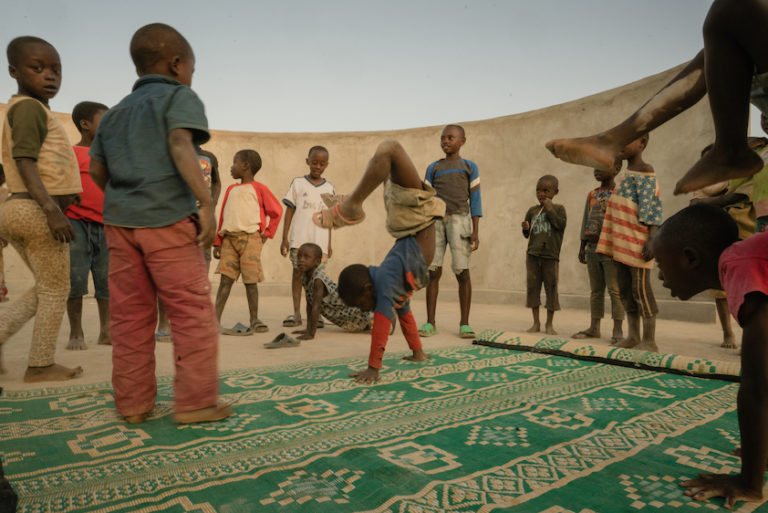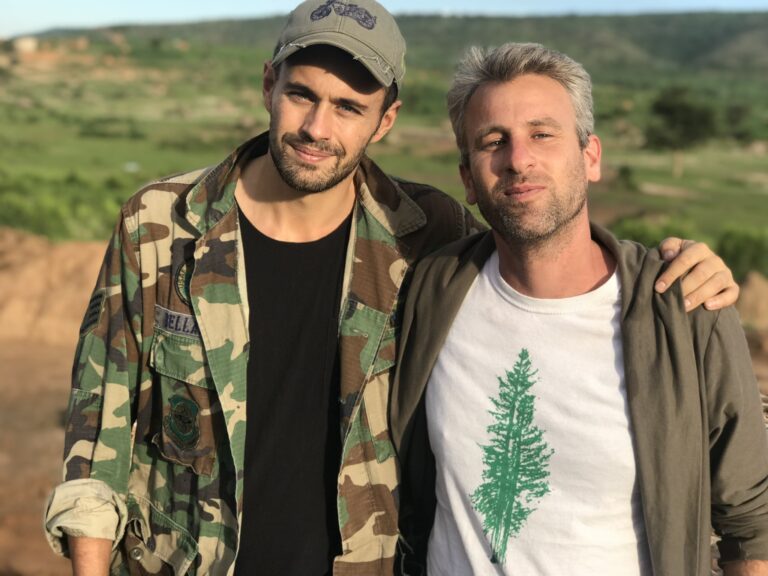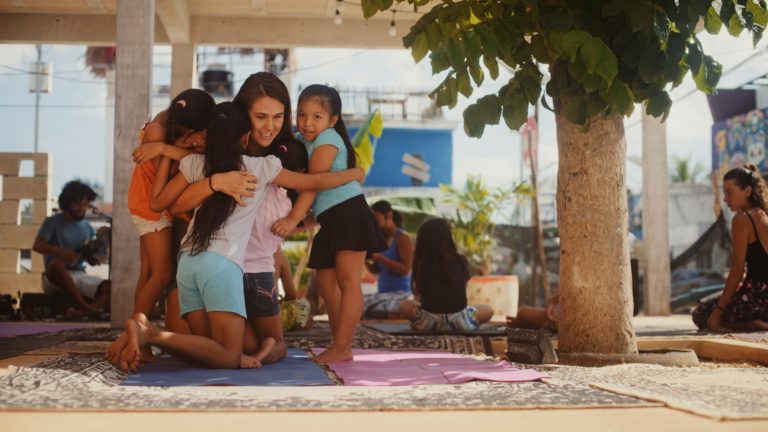Co-Creation on the Rise
Tourism, at its core, has the power to build a world of understanding and compassion. Still, in order for positive change to occur, there must be an ongoing stream of informed conversations and concrete actions taking place on the ground.
Since 2017, our global impact initiative, Habitas RISE, has been committed to empowering local communities, cultures, and conservation efforts in the places we call home. Our mission is rooted in the belief that we are guests and guardians for future generations with a collective responsibility to preserve the beauty of our Earth and its people.
With the growth of Habitas around the world, RISE is beginning to expand its vision with the leadership of Mike Zuckerman, our RISE Director. While new to his role, Mike has been part of the initiative’s evolution, working closely with the team that initially started the non-profit. Now, as our director, his professionalism, passion, experience, and network will drive our efforts forward, bringing Habitas to the next level in a way that reflects our values and expertise.
After completing a degree in systems thinking, Mike decided to dedicate his abilities to the humanitarian sector with the goal of creating more efficient processes across a spectrum of causes, from refugee crises to regenerative waste management and future cities. Over the years, the theme of his activism has revolved around the concept of co-creating physical space. He tells us, “One of the only things I’ve seen work again and again is when local people come together in connection to figure out what challenges they’re facing and how, together, they can come up with solutions and have fun at the same time.
Throughout his career, Mike has consulted for a number of projects, including green residential buildings, environmental nightclubs, a 14-country network of [freespaces], and physical and cultural infrastructure in massive refugee camps. His involvement with Habitas started in 2017 with the Uhuru Land project in the Ugandan Nakivale Refugee Settlement: a 64-year-old refugee camp with a population of around 140,000 people from 12 different African nations.
Spearheaded by our co-founder Oliver Ripley, the Uhuru Land project involved donating a piece of land and funding the creation of an ancient Greek-inspired amphitheater designed by Congolese refugee Patrick Muvunga. In doing this, the team’s mission was to change the refugee experience by having a grandiose place to celebrate culture and innovation.
Over the years, Mike has assisted with the project and watched the land transform, now home to many innovative structures that house dozens of projects, as well as budding gardens and trees. It has also hosted countless events attended by thousands, all organized by Nakivale’s refugees. Mike points out, “I’ve been to almost 100 refugee camps around the world and have never encountered such a vibrant example of cultural infrastructure, especially one created and run by refugees.”
Mike’s decision to join the Habitas family is tied to his belief that the private sector has an essential role in sustainable development and advancing economic and social opportunities. He points out, “We need to learn from innovative companies because it’s not going to be solved by the humanitarian sector or any individual alone.”
In his new role, Mike hopes to replicate the model of localization used in Uganda in the places we call home while continuing to support global causes, with recent examples such as the rebuilding of Ukraine and earthquake disaster relief in Turkey and Syria. By identifying and working closely with key local and national actors, RISE can understand what is truly needed and appreciated within a community instead of making unilateral decisions or creating a relationship of dependence.
Currently set up as a granting foundation, Habitas RISE raises money and donates it to various local and global causes. Notable projects include LADLE, an organization empowering the next generation of leaders in Tulum, and Agua Clara, a non-profit monitoring the Bacalar lagoon’s water quality. But Mike sees the model transforming over time to include more projects co-created within the communities we call home.
He explains, “As a company, it’s not just about doing as little harm as possible, which is sustainability, but about trying to do as much good as possible with the assets and the skills that [the company] and their network possess. At Habitas, there is this amazing ability to create low-impact infrastructure quickly, and we also have the ability to create a good vibe that facilitates human connection. What we do for our guests is beneficial [to all types of people], and that’s the vision for RISE: to offer what we do for our guests to the local community.”
With this vision in mind, the ultimate goal is to co-create spaces where the community takes ownership of them and uses them in ways that best fit their needs. To do that, Mike believes that the best strategy is to lead with culture, whether that be food, music, sports, or other beloved activities in a place. It’s about drawing people in and inspiring them to transform and improve the space and the surrounding area.
With the evolution of RISE, the Habitas guest experience will eventually transform, too. Mike points out, “This model also creates an excursion for our guests to go to the community and have that same kind of look-and-feel as the property but at a place populated with different people. That’s why a lot of people travel: to have that cultural exchange, experience, and knowledge.”
Driven by a passion and sense of responsibility to do good, Mike hopes to use our network and skills to tap into the potential of the local communities we call home, empowering generations to come. Today, and every day, he reminds us of an important quote, “Talent is evenly distributed across the world; opportunity is not.”



